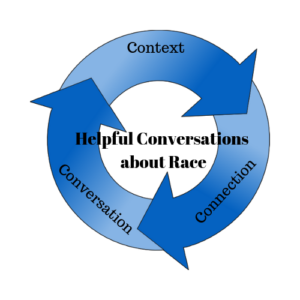May 26, 2021 in anti-racism
Time for a Check-up

If you are like me, this year has included hearing about some historical events that were not in the textbooks used in school. Some of this history has been hard to hear, and I can see why people were tempted to leave it out. But in Isabel Wilkerson’s book “Caste: The Origins of Our Discontents”, she makes a helpful analogy:
“When we go to the doctor, he or she will not begin to treat us without taking our history – and not just our history, but that of our parents and grandparents before us… The doctor will not hazard a diagnosis until he or she knows the history going back generations.”
She goes on to remind us that we don’t benefit by denying the full truth of our medical history. That information is necessary to make good decisions that will impact our future health. The same can be said for the difficult history around race in the United States.
“Looking beneath the history of one’s country is like learning that alcoholism or depression runs in one’s family or… discovering that one has inherited the markers of a BRCA mutation for breast cancer. You don’t ball up in a corner with guilt or shame at these discoveries. You don’t, if you are wise, forbid any mention of these. In fact, you do the opposite. You educate yourself.”
If you don’t have any idea what I am talking about, there is a good chance that you also were denied a few chapters in the history you learned in school. There is a wealth of information out there. For the future health of the country, I would encourage you to join me in exploring the history of race in America. Like a trip to the doctor’s office, it can be uncomfortable, but if we want to heal the disease that we are experiencing as a nation, it’s time to fill in the gaps in American history.
– The Rev. Serena Sellers, a member of the Anti-racism Team, is pastor of Christ Evangelical Lutheran Church, Kulpsville

